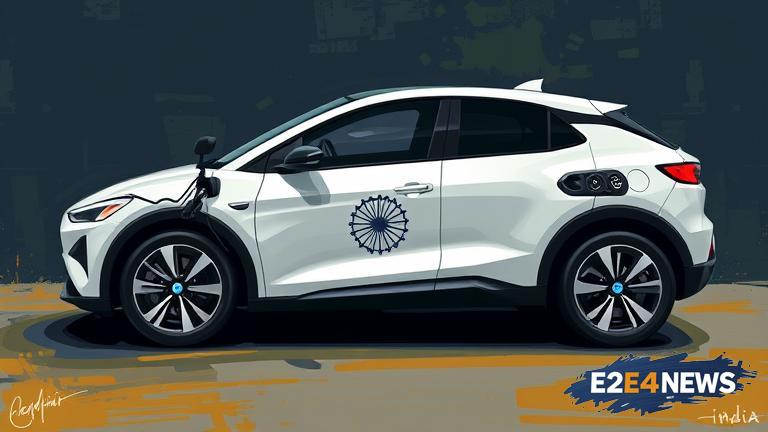The Indian government has announced a comprehensive plan to promote the adoption of electric vehicles (EVs) in the country. The plan includes a range of incentives and initiatives aimed at encouraging the use of EVs, reducing greenhouse gas emissions, and improving air quality. According to reports, the government plans to offer subsidies to EV manufacturers, as well as to consumers who purchase EVs. The subsidies are expected to be in the form of tax exemptions and discounts on the purchase price of EVs. Additionally, the government plans to invest in the development of EV charging infrastructure, including the installation of charging stations along highways and in urban areas. The plan also includes measures to promote the use of EVs in public transportation, such as buses and taxis. The government has set a target of having at least 30% of all new vehicle sales be electric by 2030. To achieve this goal, the government plans to work with state governments and private companies to develop EV-friendly policies and infrastructure. The plan also includes measures to promote the use of EVs in rural areas, where access to charging infrastructure may be limited. The government has announced plans to provide subsidies to rural residents who purchase EVs, as well as to invest in the development of off-grid charging systems. The use of EVs is expected to have a number of benefits, including reducing greenhouse gas emissions, improving air quality, and reducing the country’s dependence on fossil fuels. EVs are also expected to create new job opportunities in the manufacturing and service sectors. The government has announced plans to work with private companies to develop EV manufacturing facilities and to provide training to workers in the EV sector. The plan has been welcomed by environmental groups and industry leaders, who see it as a major step forward in the country’s efforts to reduce its carbon footprint. However, some critics have expressed concerns about the plan’s feasibility and the potential impact on the country’s automotive industry. Despite these concerns, the government remains committed to its goal of promoting the adoption of EVs and reducing the country’s dependence on fossil fuels. The plan is expected to have a major impact on the country’s transportation sector, which is currently dominated by fossil fuel-powered vehicles. The use of EVs is also expected to have a number of economic benefits, including reducing the country’s fuel imports and creating new job opportunities. The government has announced plans to monitor the plan’s progress and to make adjustments as needed. The plan is part of the government’s broader efforts to reduce the country’s carbon footprint and to promote sustainable development. The government has set a target of reducing the country’s greenhouse gas emissions by 33% by 2030, and the promotion of EVs is seen as a key part of this effort. Overall, the plan to promote the adoption of EVs in India is a major step forward in the country’s efforts to reduce its carbon footprint and to promote sustainable development.
